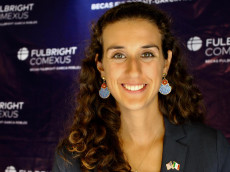On June 29, the National Drug Authority (NDA) of Uganda approved a herbal supplement called Covidex designed as a supportive treatment in the management of Covid and other viral infections. The drug was developed by Professor Patrick Engeu Ogwang, head of pharmacy at Mbarara University of Science and Technology, located in southwestern Uganda. The drug reportedly contains extracts of berberine, a chemical most commonly taken for diabetes, and zanthoxylum gilletii, a plant with analgesic properties.
Uganda has a long history of traditional medicine (TM). During colonial rule, TM was disparaged as backwards in comparison to the “superior” western medicine (WM) introduced and systematized by the British. Since independence in 1962, subsequent Ugandan governments have embraced TM in an effort to strengthen national and cultural identities. The 1993 Drugs Regulatory Authority Act stated that research should be conducted into traditional and herbal medicine. This trend has clearly continued into the Covid crisis, with the government backing not only Covidex, but also Covilyce, a different solution produced by a team at Gulu University.
The speed of approval of Covidex is alarming to health advocates. Dr. Monica Musenero, Presidential Advisor on Epidemics and COVID-19, commented: “‘All we see is information on social media of pictures of people lining up to buy the drug. We are not saying that the vaccine is bad or it does not work or is harmful. We just need evidence. Science is designed in a way that no single individual can claim that something works without convincing a panel of other people.’” Dr. Ambrose Talosuna, the World Health Organization (WHO) Africa’s team leader on emergency preparedness, similarly cautioned against fast-tracking a new drug: “‘people are gullible in a situation like this where there is a pandemic. My recommendation is for the Professor to take his drug through rigorous testing.’” After only 14 days of investigation, Covidex was approved as a supportive treatment in the management of viral infections, with initial scientific assessments completed in a scant three days. Even as random controlled clinical trials are ongoing, the drug has hit the market.
Although the NDA explicitly approved Covidex as a supportive treatment, many Ugandans believe that it cures Covid. Emma Ojok, administrator at Gulu Disabled Persons Union in northern Uganda, heard via social media that Covidex takes three days to cure Covid. Over the radio, many users are giving testimony that the drug helped them recover. Emma feels more optimistic about the pandemic with the introduction of this seemingly life-saving drug: “if someone tells you if you take this drug, you are not going to die of Covid. If something works, why don’t we promote it. If it’s curing people, why can’t we use it?” Clearly, the messaging around Covidex does not reflect the reality of the drug as a supplement.
Included within the danger of false advertising is the manufacture and sale of knock-off Covidex on the black market. Victoria, founder of Women in Action for Women (WAW) in northern Uganda, worries about “duplicates,” especially since hawkers are selling them at more affordable prices than the real drug, which, at 35,000 UGS is out of the price range of the majority of the population.
Posted By Anna Braverman
Posted Jul 28th, 2021


1 Comment
Iain Guest
July 31, 2021
Fascinating, well researched and deeply alarming. This is what happens when the vaccines aren’t available and people start recommending dangerous alternatives (remember being told to drink bleach here in the US?). It certainly opens the way to hucksters. I’m also wondering whether there’s a legitimate role there for traditional medicine in this COVID crisis. Lots to chew on in this post.